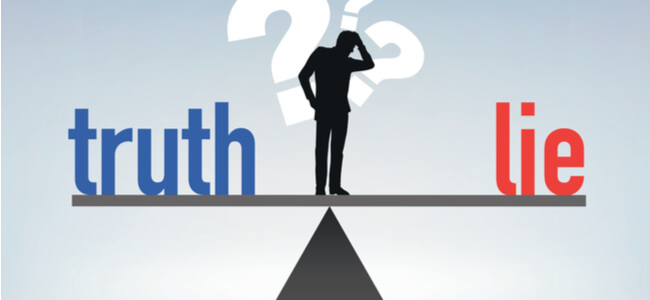How To Choose A DNA Testing Kit

Are you thinking about taking a DNA test? You’re definitely not alone. The rise in popularity of testing has grown considerably in the last few years.
Thanks to the ease of testing and the relatively inexpensive price point, many people are taking the plunge to learn more about their family history, ethnicity, and even establish new family connections.
If you are ready to order a test, take a moment to consider why you want to take it. Are you more interested in information about health? Or do you want to learn more about your ethnicity? Knowing your objectives and aims will ensure you select the appropriate test.
Read on to learn the basics for choosing the right DNA testing kit.
Study The Types Of Tests
There is an entire world of testing available out there, but how can you know which test to pick? Common types of DNA evaluations include:
- Health test: These provide insights into genetic mutations, potential diseases, and your overall health outlook
- Y-DNA test: This test focuses on the patrilineal line of your DNA
- mtDNA test: This test is used to understand the matrilineal line of your DNA
- Autosomal DNA test: As the most common test type, an autosomal test focuses on DNA from both parents and usually gives results up to 5 generations back
The test you pick is dependent on the information you want to know. If your concern is to trace your father’s side of the family and understand its ethnicity, you will want to take a Y-DNA test.
If you are looking for a general overview of your family heritage and ethnicity, you should opt for the autosomal test.
DNA Tests For Different Ages
Young people seekingto improve their exercise routine and overall health would be wise to take a health test.
By doing so, you can understand what genetic diseases you may be predisposed to and take proactive steps towards diminishing the risk factors.
If you plan to one day have kids, a test can also reveal what hereditary diseases you may be at risk for passing on. More important health insights can be gained from a test, including:
- Diet
- Nutrition
- Exercise
This can be invaluable as a young person to understand at an early age and live the healthiest life possible.
DNA tests may also reveal important information about your ethnicity and family heritage that was perhaps overlooked and not recorded.
You may even be the first person in your family to discover some unknown family ancestry.
DNA Tests For Women Vs. Men
The kind of test you take may also depend on your gender. Men and women may have different concerns regarding what they want to find out from their DNA tests.
Popular issues for men include:
- Male pattern baldness
- Exercise, nutrition, and health information
- Predisposition to cardiovascular disease
- Genetic mutations that can cause serious illnesses
Many women approach DNA testing to learn about:
- The risk for breast cancer and uterine cancer
- Genetic diseases they may pass on to any children
- Predisposition to serious illnesses
While researching, read carefully what each company offers. If your concerns are mainly health-related, seek out a health test. If you want to improve your overall fitness, and take a proactive stance toward your health, find a DNA test company that will provide you with precisely that.
Both men and women can equally benefit from autosomal testing, which is a general overview of your ethnicity and heritage, from both sides of your family.
This can be an excellent place to begin your DNA journey if you’re unsure where to start.
DNA Tests Based On Ethnicity
If you have ever had a sneaking suspicion that your heritage is different than what family members have told you, or simply want to discover more specifics surrounding your ethnicity, taking a DNA test is the perfect place to start.
However, if you already have some information about your ethnicity, you may want to consider which test you will pick carefully.
Most of the ancestry DNA data that companies have on file is centered around European ancestry.
This can be a challenge for certain ethnic groups who want more information or want to connect with other living relatives.
Carefully research tests and see if you can find one that caters to your specific needs.
Some examples include:
- African Americans: Many African Americans have turned to testing to fill in blanks in their family trees and to connect with living relatives they did not even know existed. This can be a fulfilling way to expand your family and build new relationships.
- Asian: Asian communities have had a harder time finding the right DNA test. While there seems to be ample information for Chinese and Japanese ancestries, others have had a more difficult time. Look for a DNA test that caters to Asian ethnicities specifically.
- Jewish: Jewish people of Ashkenazi descent are more prone to be carriers of certain genetic mutations like Tay-Sachs disease. Ordering a health test might be a good idea if you are considering starting a family and want to understand what you may pass on to your children.
Those who have never met their biological parents may not know where to start when it comes to DNA testing based on ethnicity. That’s ok too.
You’re not alone, and many people who think they have an idea of their ethnicity have been surprised by the results.
Start with the most common type of test, autosomal, to begin to piece your heritage together.
Take Privacy Seriously
When you take a DNA test, you will most likely submit a swab of your cheek or a sample of saliva. Once your sample arrives back at the company’s facilities, your DNA will be examined, and you will be given information about your ethnicity, heritage, or otherwise. Yet, what happens to your DNA data once you receive the results?
Most companies keep your information on file and incorporate it into their database. The larger the database a company has assembled, the more samples they have to test with; therefore, the more accurate results they can provide.
The good news is that many companies will continue to update your profile as they gather more data. The bad news is that your valuable genetic information is technically in their hands.
Some companies will delete your information if you officially ask them to per their detailed instructions. As always, you’ll want to read the fine print closely to ensure you are comfortable with their security and data privacy measures.
Conclusion
Picking the right test is relatively simple; it just may require some self-introspection before you get started. Try writing a list of your goals and what you hope to accomplish with your DNA results. Most likely, a clear pattern will emerge.
You may find your concerns are primarily centered on health, while others find their drive for testing is to build a family tree and make new family connections.
No matter your reasons for wanting to take a DNA test, the right test is out there for you. Simply start assembling your goals to enjoy the path to greater self-discovery.



